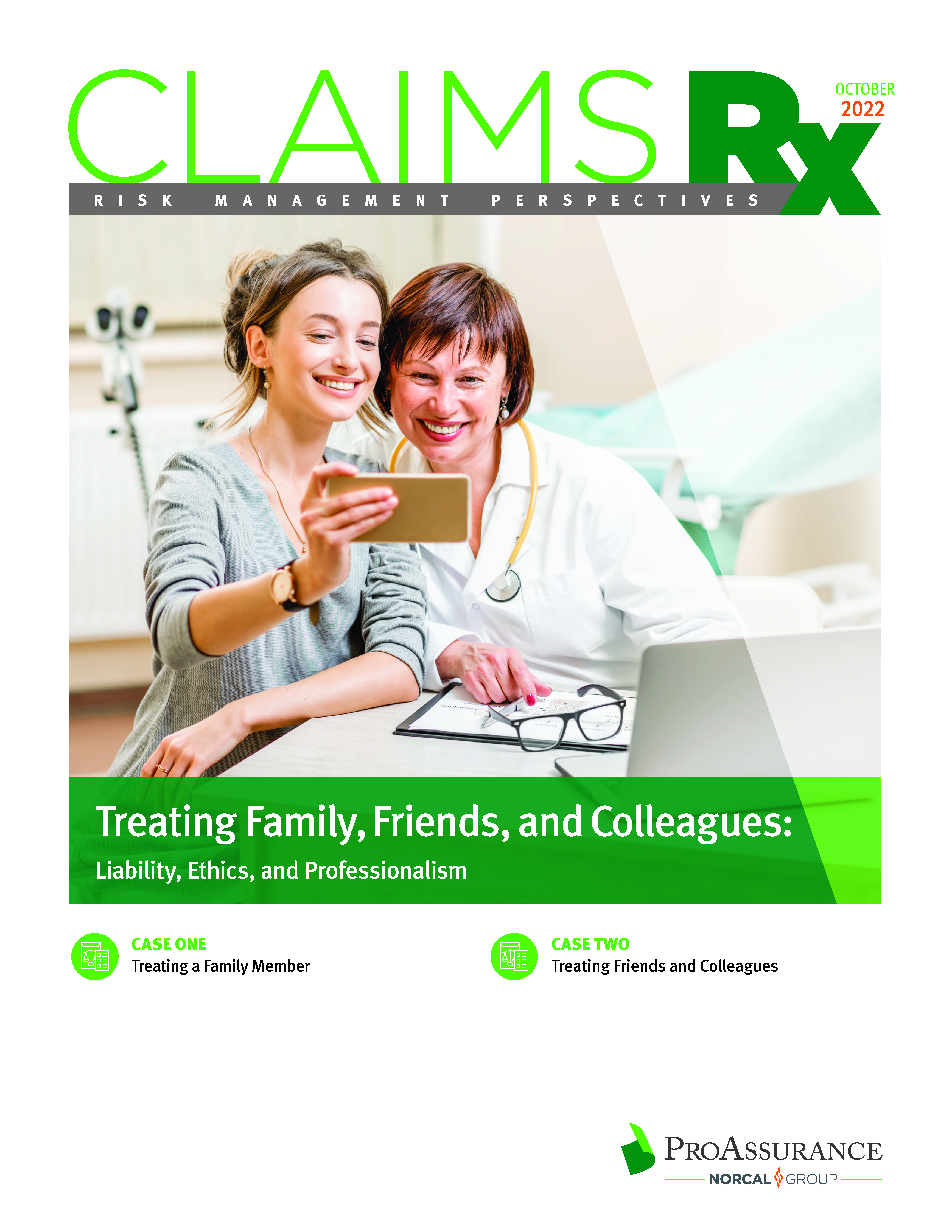Emotional attachment to patients―particularly patients who are family members, friends, or colleagues―can disrupt professional objectivity and weaken the primacy of the physician-patient relationship during a medical encounter. The disequilibrium can cause or contribute to patient injury, increasing the risk of malpractice lawsuits and medical board disciplinary actions. For example, emotional proximity can result in inadequate history and examination, over- and under-treatment, and lack of informed consent. Friend-like behavior, such as social touching and discussing personal issues, can confuse patients and result in their sense that a professional boundary has been crossed. When a treatment outcome is unexpected, these issues can contribute to an individual’s choice to file a legal or medical board claim. As family, friends, and colleagues are often treated with a more casual approach, lack of documentation can complicate the defense. This article uses case studies based on closed malpractice claims to introduce strategies to support the separation of personal and professional obligations with the objective of maintaining patient safety and reducing medical liability risk.
|
|

NORCAL Group Insureds
Access this article for CME credit.
Typically each Claims Rx provides an opportunity for NORCAL Group insureds to earn AMA PRA Category 1 Credit™ at no additional cost.
Not a Policyholder?
A featured complimentary Claims Rx is always available on the Claims Rx Directory main page, and all Claims Rx Directory articles with expired CME Credit are available for download.
© 2001 - 2023 ProAssurance
All rights reserved